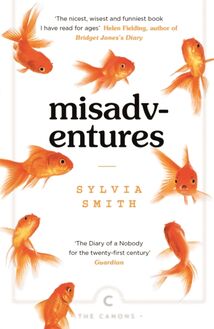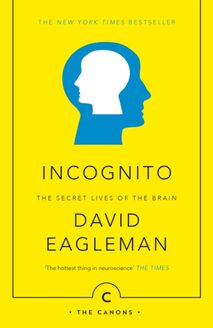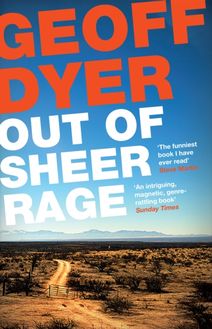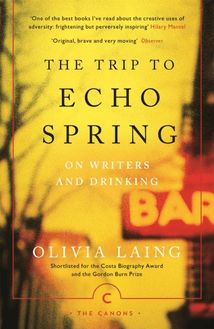-
 Univers
Univers
-
 Ebooks
Ebooks
-
 Livres audio
Livres audio
-
 Presse
Presse
-
 Podcasts
Podcasts
-
 BD
BD
-
 Documents
Documents
-
- Cours
- Révisions
- Ressources pédagogiques
- Sciences de l’éducation
- Manuels scolaires
- Langues
- Travaux de classe
- Annales de BEP
- Etudes supérieures
- Maternelle et primaire
- Fiches de lecture
- Orientation scolaire
- Méthodologie
- Corrigés de devoir
- Annales d’examens et concours
- Annales du bac
- Annales du brevet
- Rapports de stage
La lecture à portée de main
Vous pourrez modifier la taille du texte de cet ouvrage
Découvre YouScribe en t'inscrivant gratuitement
Je m'inscrisDécouvre YouScribe en t'inscrivant gratuitement
Je m'inscrisEn savoir plus
Vous pourrez modifier la taille du texte de cet ouvrage
En savoir plus

Description
Sujets
Informations
| Publié par | Canongate Books |
| Date de parution | 02 janvier 2020 |
| Nombre de lectures | 0 |
| EAN13 | 9781786898562 |
| Langue | English |
Informations légales : prix de location à la page 0,0440€. Cette information est donnée uniquement à titre indicatif conformément à la législation en vigueur.
Extrait
Anne Lamott is the New York Times bestselling author of a number of non-fiction books, including Almost Everything; Help, Thanks, Wow; Small Victories; Stitches and Bird by Bird . She is also the author of several novels, including Imperfect Birds and Rosie . A past recipient of a Guggenheim Fellowship and an inductee to the California Hall of Fame, she lives in Northern California.
@annelamott
ALSO BY ANNE LAMOTT
NONFICTION
Operating Instructions: A Journal of My Son s First Year
Traveling Mercies: Some Thoughts on Faith
Plan B: Further Thoughts on Faith
Grace (Eventually): Thoughts on Faith
Some Assembly Required: A Journal of My Son s First Son
Help, Thanks, Wow: The Three Essential Prayers
Stitches: A Handbook on Meaning, Hope and Repair
Small Victories: Spotting Improbable Moments of Grace
Hallelujah Anyway: Rediscovering Mercy
Almost Everything: Notes on Hope
FICTION
Hard Laughter
Rosie
Joe Jones
All New People
Crooked Little Heart
Blue Shoe
Imperfect Birds
First published in Great Britain in 2020
by Canongate Books Ltd, 14 High Street, Edinburgh EH1 1TE
canongate.co.uk
This digital edition first published in 2020 by Canongate Books
First published in the USA in 1994 by Pantheon Books, a division of
Penguin Random House LLC, New York
Copyright Anne Lamott, 1994
The right of Anne Lamott to be identified as the author of this work has been asserted by her in accordance with the Copyright, Designs and Patents Act 1988
Every effort has been made to trace copyright holders and obtain their permission for the use of copyright material. The publisher apologises for any errors or omissions and would be grateful if notified of any corrections that should be incorporated in future reprints or editions of this book.
British Library Cataloguing-in-Publication Data
A catalogue record for this book is available on request from the British Library
ISBN 978 1 78689 855 5
eISBN 978 1 78689 856 2
This book is dedicated to Don Carpenter
Neshama Franklin
John Kaye
CONTENTS
Acknowledgments
Introduction
Part One: WRITING
Getting Started
Short Assignments
Shitty First Drafts
Perfectionism
School Lunches
Polaroids
Character
Plot
Dialogue
Set Design
False Starts
Plot Treatment
How Do You Know When You re Done?
Part Two: THE WRITING FRAME OF MIND
Looking Around
The Moral Point of View
Broccoli
Radio Station KFKD
Jealousy
Part Three: HELP ALONG THE WAY
Index Cards
Calling Around
Writing Groups
Someone to Read Your Drafts
Letters
Writer s Block
Part Four: PUBLICATION - AND OTHER REASONS TO WRITE
Writing a Present
Finding Your Voice
Giving
Publication
Part Five: THE LAST CLASS
Permission Credits
Acknowledgments
I would like to acknowledge the extraordinary debt I owe to the writers who have told me such wise things about writing over the years: Martin Cruz Smith, Jane Vandenburgh, Ethan Canin, Alice Adams, Dennis McFarland, Orville Schell, and Tom Weston.
I would not be able to get my work done without the continual support and vision of my editor, Jack Shoemaker. My agent, Chuck Verrill, is just wonderful, as is Nancy Palmer Jones, who copy-edited this book (and the last) with enormous skill and warmth and precision.
I want to mention once again that I do not think I d even be alive today if not for the people of St. Andrew Presbyterian Church, Marin City, California.
Sam said to me the other day, I love you like 20 tyrannosauruses on 20 mountaintops, and this is the exact same way in which I love him.
Introduction
I grew up around a father and a mother who read every chance they got, who took us to the library every Thursday night to load up on books for the coming week. Most nights after dinner my father stretched out on the couch to read, while my mother sat with her book in the easy chair and the three of us kids each retired to our own private reading stations. Our house was very quiet after dinner-unless, that is, some of my father s writer friends were over. My father was a writer, as were most of the men with whom he hung out. They were not the quietest people on earth, but they were mostly very masculine and kind. Usually in the afternoons, when that day s work was done, they hung out at the no-name bar in Sausalito, but sometimes they came to our house for drinks and ended up staying for supper. I loved them, but every so often one of them would pass out at the dinner table. I was an anxious child to begin with, and I found this unnerving.
Every morning, no matter how late he had been up, my father rose at 5:30, went to his study, wrote for a couple of hours, made us all breakfast, read the paper with my mother, and then went back to work for the rest of the morning. Many years passed before I realized that he did this by choice, for a living, and that he was not unemployed or mentally ill. I wanted him to have a regular job where he put on a necktie and went off somewhere with the other fathers and sat in a little office and smoked. But the idea of spending entire days in someone else s office doing someone else s work did not suit my father s soul. I think it would have killed him. He did end up dying rather early, in his mid-fifties, but at least he had lived on his own terms.
So I grew up around this man who sat at his desk in the study all day and wrote books and articles about the places and people he had seen and known. He read a lot of poetry. Sometimes he traveled. He could go anyplace he wanted with a sense of purpose. One of the gifts of being a writer is that it gives you an excuse to do things, to go places and explore. Another is that writing motivates you to look closely at life, at life as it lurches by and tramps around.
Writing taught my father to pay attention; my father in turn taught other people to pay attention and then to write down their thoughts and observations. His students were the prisoners at San Quentin who took part in the creative writing program. But he taught me, too, mostly by example. He taught the prisoners and me to put a little bit down on paper every day, and to read all the great books and plays we could get our hands on. He taught us to read poetry. He taught us to be bold and original and to let ourselves make mistakes, and that Thurber was right when he said, You might as well fall flat on your face as lean over too far backwards. But while he helped the prisoners and me to discover that we had a lot of feelings and observations and memories and dreams and (God knows) opinions we wanted to share, we all ended up just the tiniest bit resentful when we found the one fly in the ointment: that at some point we had to actually sit down and write.
I believe writing was easier for me than for the prisoners because I was still a child. But I always found it hard. I started writing when I was seven or eight. I was very shy and strange-looking, loved reading above everything else, weighed about forty pounds at the time, and was so tense that I walked around with my shoulders up to my ears, like Richard Nixon. I saw a home movie once of a birthday party I went to in the first grade, with all these cute little boys and girls playing together like puppies, and all of a sudden I scuttled across the screen like Prufrock s crab. I was very clearly the one who was going to grow up to be a serial killer, or keep dozens and dozens of cats. Instead, I got funny. I got funny because boys, older boys I didn t even know, would ride by on their bicycles and taunt me about my weird looks. Each time felt like a drive-by shooting. I think this is why I walked like Nixon: I think I was trying to plug my ears with my shoulders, but they wouldn t quite reach. So first I got funny and then I started to write, although I did not always write funny things.
The first poem I wrote that got any attention was about John Glenn. The first stanza went, Colonel John Glenn went up to heaven / in his spaceship, Friendship Seven . There were many, many verses. It was like one of the old English ballads my mother taught us to sing while she played the piano. Each song had thirty or forty verses, which would leave my male relatives flattened to our couches and armchairs as if by centrifugal force, staring unblinking up at the ceiling.
The teacher read the John Glenn poem to my second-grade class. It was a great moment; the other children looked at me as though I had learned to drive. It turned out that the teacher had submitted the poem to a California state schools competition, and it had won some sort of award. It appeared in a mimeographed collection. I understood immediately the thrill of seeing oneself in print. It provides some sort of primal verification: you are in print; therefore you exist. Who knows what this urge is all about, to appear somewhere outside yourself, instead of feeling stuck inside your muddled but stroboscopic mind, peering out like a little undersea animal-a spiny blenny, for instance-from inside your tiny cave? Seeing yourself in print is such an amazing concept: you can get so much attention without having to actually show up somewhere. While others who have something to say or who want to be effectual, like musicians or baseball players or politicians, have to get out there in front of people, writers, who tend to be shy, get to stay home and still be public. There are many obvious advantages to this. You don t have to dress up, for instance, and you can t hear them boo you right away.
Sometimes I got to sit on the floor of my father s study and write my poems while he sat at his desk writing his books. Every couple of years, another book of his was published. Books were revered in our house, and great writers admired above everyone else. Special books got displayed prominently: on the coffee table, on the radio, on the back of the john. I grew up reading the blurbs on dust jackets and the reviews of my father s books in the papers.
-
 Univers
Univers
-
 Ebooks
Ebooks
-
 Livres audio
Livres audio
-
 Presse
Presse
-
 Podcasts
Podcasts
-
 BD
BD
-
 Documents
Documents
-
Jeunesse
-
Littérature
-
Ressources professionnelles
-
Santé et bien-être
-
Savoirs
-
Education
-
Loisirs et hobbies
-
Art, musique et cinéma
-
Actualité et débat de société
-
Jeunesse
-
Littérature
-
Ressources professionnelles
-
Santé et bien-être
-
Savoirs
-
Education
-
Loisirs et hobbies
-
Art, musique et cinéma
-
Actualité et débat de société
-
Actualités
-
Lifestyle
-
Presse jeunesse
-
Presse professionnelle
-
Pratique
-
Presse sportive
-
Presse internationale
-
Culture & Médias
-
Action et Aventures
-
Science-fiction et Fantasy
-
Société
-
Jeunesse
-
Littérature
-
Ressources professionnelles
-
Santé et bien-être
-
Savoirs
-
Education
-
Loisirs et hobbies
-
Art, musique et cinéma
-
Actualité et débat de société
- Cours
- Révisions
- Ressources pédagogiques
- Sciences de l’éducation
- Manuels scolaires
- Langues
- Travaux de classe
- Annales de BEP
- Etudes supérieures
- Maternelle et primaire
- Fiches de lecture
- Orientation scolaire
- Méthodologie
- Corrigés de devoir
- Annales d’examens et concours
- Annales du bac
- Annales du brevet
- Rapports de stage




















